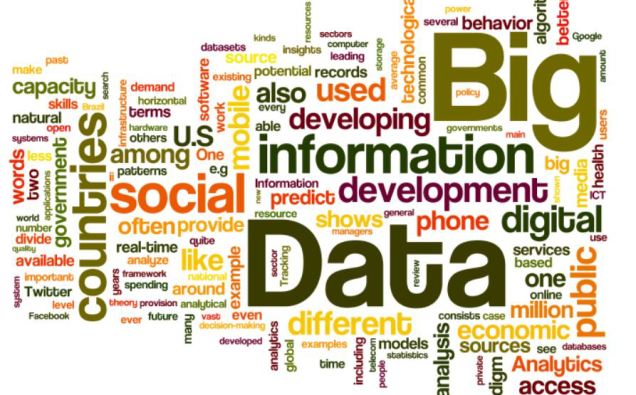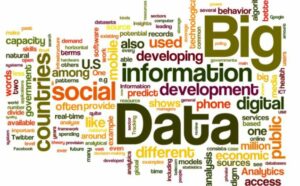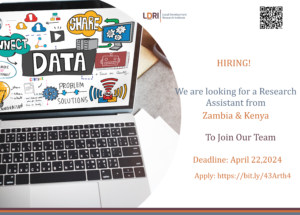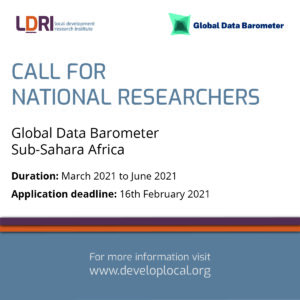![]()
Tackling Big Data for Development in Africa


The Local Development Research Institute is conducting a research study on the state of big data for development in Africa. This is an extensive project to identify existing and current uses of big data and its technologies relating to social and economic development of the continent. Analysis on its application in key sectors such as agriculture, energy and healthcare will help us identify the key actors, intermediaries and ecosystems in the production and use of big data, their capacities, achievements and limitations hindering development.
Our study also aims to identify gaps, necessary infrastructure and networks that can be developed to better support all stakeholders in achieving developmental outcomes. Further, our study seeks to provide a critical view on ways the African Hub of the Global South initiative on Big Data can offer support to countries and develop models of engagement and collaboration for new opportunities. Therefore our research will provide great insights in addressing the challenges and improving
on inefficient systems within the continent. This is the first of a series of blogs aimed to share emerging findings from our research into the applications and opportunities for big data to advance development in Africa.
Data, in today’s administrative operations, business and technology world, is indispensable. Big data can be described as large volume of data in both structured and unstructured formats surrounding a business on a day-to-day basis. Through Big Data analytics, we begin the process of examining the large data sets to underline insights and patterns.
The concept of big data evolved at the beginning of the 21st century after its emergence in 2005 from O’Reilly Media by Roger Mougalas and every technology giant is currently a huge consumer of the Big Data technologies. The relevant aspect of big data is not dependent on its voluminous nature, but on what governments, organizations, society and all stakeholders involved do with the data acquired strategically.
Every institution including government operations relies heavily on data for its planning, coordination, implementation and more so, sustainability of public service delivery projects to its citizens whilst also creating an enabling environment for the growth of businesses and enterprise opportunities. Government statistics offices collect vast sums of data in different performance categories from its citizens through traditional sources i.e. official statistics and national surveys. However, new technological advances have created an opportunity for improving the accuracy and efficiency in data collection methods and validation. According to the Secretary-General’s Independent Expert Advisory Group of the United Nations, states are now making significant efforts to incorporate big data analytics in the race to improve statistical capacity for evidence driven decision making from food insecurity, spread of diseases, and transport and policy implementation among other development aspects.
On the other hand, Private sector has increasingly become the prevalent economic contributor to most nations’ GDP globally. This has clearly necessitated the need for rapid or near-real-time data acquisition within the sector for growth strategies and expansion to reach extended markets with a key focus on innovation and cost. The availability of vast amounts of alternative data collected in the private sector has propelled governments across the board to engage heavily not only with the private sector but also academia, international organizations and civil society organizations (CSO) to harness big data for the mutual benefit of all parties. These partnerships are particularly necessary given the immense potential of harnessing this big data to advance development according to national, regional and global priorities.
Important collaborations such as that of the U.S. Agency for International Development (USAID) with various Ministries of Health, and statistical bodies across Africa in the collection of health data and demographics through the Demographic Health Survey, have greatly improved the standards and methods for measuring nutrition, child and maternal health as well as various diseases. One great example is USAID’s collaboration with Measure Valuation to develop Geographic Information Systems (GIS) that map geographic data to facilitate monitoring and evaluation (M&E) of HIV/AIDS and related health programs. This data has been used to improve family planning interventions; to assess the correlation of malaria prevalence and anemia in children in West Africa and; to analyze the effects of environment on early childhood mortality.
Academic Institutions such as Moi University and Jomo Kenyatta University of Agriculture and Technology in Kenya are also at the forefront in improving how they collect information by designing data collection devices that improve the time, accuracy and storage of data for the upcoming census in Kenya.
It is observed that many African Governments intending to utilize big data in advancing development, are heavily reliant on expertise, funding and technology from multilateral organizations to carry out these exercises. This has greatly shifted how they identify new problems, improve capacity to understand and use data effectively to fully improve its ability to improve the lives of its citizens and increase business productivity just like any other pertinent
investment in new tools and technologies, big data use needs to be protected and streamlined by policies and laws governing its creation, consumption, distribution, implementation and validity. Intensive Data protection mechanism should be put in place to enable regulate especially privacy concerns, as the only existing undocumented measure presently is data source anonymity and data disaggregation techniques. In Africa there are 17 countries that
have enacted comprehensive personal data protection legislation, with 9 other countries currently, such as Egypt, Tanzania and Nigeria are still undergoing the process of passing laws that would safeguard citizen data with legal policies frameworks for its publication and dissemination.
Consulting with experts in Big Data across institutions from private to public sector in in-depth interviews who are spearheading the implementation and adoption of these practices will further help us develop an understanding of the resources required, the technology and requisite enabling environment for sustainability to create greater impact for the continent.




